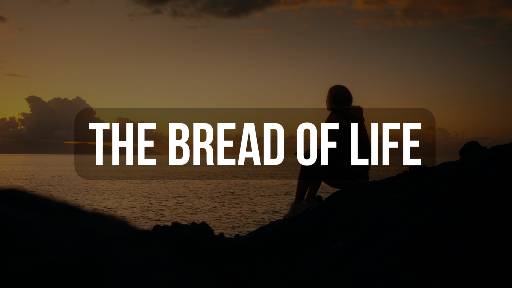-
The Eternal Word Series
Contributed by Paul Dayao on Oct 3, 2025 (message contributor)
Summary: Jesus Christ, the eternal Word, is both God and Creator, calling us to trust, worship, and obey Him as the Lord of all.
Introduction
Beloved, the passage before us today takes us back—not just to the beginning of human history, not just to the first verse of Genesis, but even before time itself began. John lifts our eyes beyond creation to show us the eternal Christ, the Living Word of God. These verses form the foundation of our faith, for if we do not understand who Jesus truly is, we will not understand why He came or why He saves.
Let us consider the glory of Christ under four truths: His eternal existence, His divine fellowship, His deity, and His creative power.
I. The Word’s Eternal Existence — “In the beginning was the Word”
John echoes Genesis 1:1, but with deeper revelation. In the beginning, before the heavens and the earth, before angels sang or man was formed from dust, the Word already was.
This means Jesus Christ is not part of creation—He is outside of it. He is eternal, uncreated, and everlasting. He is not a “god” who came into being, but the God who always has been. Our Lord said in John 8:58, “Before Abraham was, I am.”
Beloved, this comforts us: the Savior we trust in did not appear yesterday—He is the Ancient of Days, the Alpha and Omega, the One who reigns from everlasting to everlasting.
II. The Word’s Distinct Personhood — “The Word was with God”
The Word was in fellowship with God the Father. This shows distinction in personhood—Jesus is not the Father, yet He is with the Father, face to face in eternal communion.
Here lies a mystery that human minds cannot fully grasp: the Triune God—Father, Son, and Holy Spirit. Not three gods, but one God in three Persons. Before the world was made, God was not lonely. Love existed within the Godhead, for the Father loved the Son, and the Son delighted in the Father.
If Christ enjoyed eternal fellowship with the Father, how much more does He invite us now into that fellowship through His death and resurrection?
III. The Word’s Divine Identity — “The Word was God”
Here John leaves no doubt. Jesus Christ is not merely a prophet, not merely a teacher, not merely a mighty man of God. He is God.
This is the heart of the gospel. If Jesus were only a man, His death could not save us. If He were only an angel, His blood would not wash us clean. But because He is God in the flesh, His sacrifice has infinite value, able to redeem the whole world.
So, beloved, when you worship Jesus, you are not worshiping less than God—you are worshiping God Himself. When you bow the knee to Christ, you bow before the Almighty.
IV. The Word’s Creative Power — “All things were made by him”
John declares that all things were made by Him. Not some things. Not most things. All things. From the galaxies that spin in the heavens to the smallest atom, from the mountains and seas to your very heartbeat, all exist because of Him.
This means your life is no accident. You are not a product of chance, but of Christ’s creative hand. He made you, He sustains you, and He knows your purpose.
If Christ has the power to create the universe, then surely He has the power to recreate your broken life. The One who said “Let there be light” can also say, “Let there be light in your soul.”
Application
What does this mean for us today?
Since Christ is eternal, let us trust Him—for His promises stand forever.
Since Christ is in fellowship with the Father, let us draw near to Him—for He brings us into communion with God.
Since Christ is God, let us worship Him—not half-heartedly, but with all our hearts.
Since Christ is Creator, let us obey Him—for He has authority over our lives.
Conclusion
Beloved, John 1:1–3 lifts our eyes to behold the majesty of Christ. He is eternal, He is with God, He is God, and He is Creator. The world may reduce Him to a mere man, but the Scriptures exalt Him as the Eternal Word.
Will you trust Him today as your Lord and Savior? Will you give Him the worship that belongs to Him alone?

 Sermon Central
Sermon Central



